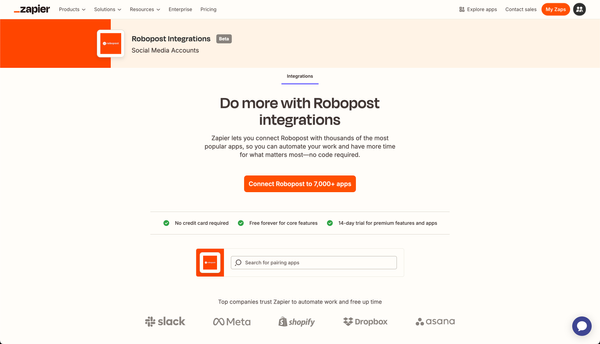Building Trust and Authority through Social Media Content
Boost brand trust with social media: authentic stories, educational content, UGC, and real insights. Show your expertise and engage.

In today's digital world, gaining trust and establishing authority is crucial, especially on social media. Brands that use social media content to demonstrate authenticity, expertise, and real engagement can stand out in the market. This article discusses strategies like storytelling, educational content, user-generated posts, behind-the-scenes glimpses, and customer testimonials. These methods not only inform your audience about your brand but also demonstrate its values and abilities.
Key Takeaways
- Telling genuine stories on social media can greatly improve trust in your brand by creating a narrative that connects with your audience and sets your brand apart from competitors.
- Sharing behind-the-scenes content and insights makes your brand more relatable, promotes transparency, and helps you connect with your audience on a more personal level.
- Customer testimonials and positive feedback act as proof, reinforcing your brand's credibility and influencing consumer trust and decision-making.
Leveraging Authentic Storytelling in Social Media
The Power of Narrative in Building Brand Trust
Storytelling is crucial for building brand trust. When companies tell compelling stories, they connect deeply with their audience, laying the foundation for long-term relationships. Being authentic in these stories isn't just helpful—it's necessary. When a brand's story aligns with what it does and believes in, it connects with consumers, building trust and loyalty.
Here are some strategies for building trust through storytelling:
- Stay true to your brand's message and be authentic.
- Share your brand's unique journey and customer experiences.
- Be transparent about your values and practices.
Listening to your audience's feedback is crucial for crafting a story that connects with them and involves them. This approach can make your brand's narrative memorable and impactful.
Crafting Compelling Stories that Resonate with Audiences
To create a story that connects with your target audience, it's important to know what makes a narrative interesting. A good plot, characters people can relate to, a clear problem, emotional appeal, and a satisfying ending are the key elements of a story that captures and holds attention.
The emotional bond is crucial in effective storytelling. By evoking feelings like happiness, sadness, or inspiration, you create a connection with your audience that goes beyond just sharing information.
Adding these elements to your social media posts can change how your audience sees your brand.
- Share personal stories that showcase your passion and dedication to quality.
- Use emotional storytelling and powerful images to connect emotionally.
- Include a clear purpose and mission in your content to inspire alignment with your brand's values and goals.
When people feel a connection to your values and objectives, they're more inclined to become devoted supporters of your brand.
Case Studies: Successful Storytelling Campaigns
The use of storytelling in social media marketing helps brands connect deeply with their audience. Creating engaging narratives can keep customers interested and loyal, as they become emotionally invested in the brand. For instance, a tech company sharing stories of how its products have positively impacted people with disabilities can create a strong bond with its audience.
Adding customer testimonials and reviews is another effective strategy. These serve as proof that real people have benefitted from the brand's offerings. Amazon's use of customer reviews on product pages is a good example of how testimonials can influence purchasing decisions.
When brands incorporate success stories and client spotlights into their content, they show that they value their audience's feedback and experiences. This not only builds trust but also reinforces the brand's authenticity in the eyes of consumers.
Behind-the-Scenes Insights: Humanizing Your Brand
The Importance of Transparency in Social Media Marketing
Being transparent is crucial for earning customer trust in social media marketing. Brands that openly share details about their products, processes, and how they operate can build a stronger connection with their audience. A recent survey found that an overwhelming 94% of consumers are likely to stay loyal to a brand that is fully transparent.
Transparency goes beyond just sharing information, it means being consistently honest in all interactions. This includes:
- Clearly stating brand values and goals
- Providing accurate and timely updates about products and services
- Being open about company culture and how things work internally
By making transparency a part of your social media strategy, you not only follow ethical marketing principles but also create opportunities for meaningful relationships with your customers.
Keep in mind that in today's digital world, consumers are well-informed and expect honesty. They appreciate brands that respect their intelligence and their right to know. Embracing transparency isn't just a passing trend, it's a strategic approach that can set your brand apart in a competitive market.
Connecting with Followers by Sharing Brand Values and Culture
Sharing what your brand is about and how you work helps people relate to you. This connection turns followers into fans. For example:
- Talk to your followers: Encourage them to share and give feedback.
- Share your story: Tell people about your journey and what you believe in.
- Stay true: Make sure what you do matches what you say.
When you consistently connect with your audience and show your values, you build trust. It's also good to let people know how your brand helps the community—it makes them trust you even more.
Evaluating the Effectiveness of Behind-the-Scenes Content
To see how well behind-the-scenes content is doing, look at a few key things that show how much your audience likes it and trusts your brand:
- Engagement: Check likes, comments, and shares to see how much people interact with your behind-the-scenes posts.
- Reach and impressions: These tell you how many people are seeing your content.
- Follower growth: If more people are following you, it could mean they like what they see.
- Click-through rates: If people click on links in your posts, it shows they're interested in learning more.
Sharing moments of your team at work not only shows you're transparent but also helps build trust.
Use this information to improve your content strategy and give your audience more of what they like. Success isn't just about numbers but about building a stronger bond with your audience.
Harnessing the Power of Customer Testimonials
Leveraging Positive Feedback to Build Social Proof
Showing that others like your brand is crucial for gaining trust. Good feedback, like reviews and testimonials, tells potential customers that your brand is reliable and high-quality.
Having a place where customers can share their experiences can sway others' decisions. For example, having a page with testimonials not only shows that customers are happy but also proves that your products or services work well.
By sharing customer feedback in different places online, you build a story of success and trust that your audience will relate to. Robopost, our post scheduling tool, also share customer feedback on our website.
The aim is to turn happy customers into vocal supporters of your brand. Their positive reviews show that your brand is valuable, creating a sense of community among your customers.
Integrating Customer Stories into Your Content Strategy
Using customer stories in your content strategy is a strong way to show how your products or services make a real difference. When customers share their experiences through testimonials and reviews, it proves to others that your brand is helpful. This builds trust and encourages potential customers to try what you offer.
By including customer stories, you create a collection of relatable experiences that connect with your audience and show that your brand is trustworthy.
It's not just about showing customer happiness but also about telling the story of how your customers' lives have improved because of your brand. This approach keeps current customers happy and attracts new ones who see the value in what you do.
Assessing the Influence of Testimonials on Consumer Trust
Customer testimonials are hugely influential in building trust. They act as proof that your business is trustworthy and reliable, which can reassure potential customers. Testimonials give satisfied customers a platform to share their experiences, addressing any doubts or worries that new buyers might have.
To measure the impact of testimonials effectively, businesses should look at both the quality and quantity. Analyzing testimonials in a structured way can uncover important insights and patterns. For example:
- How many testimonials are shared across different platforms
- The average rating given in testimonials
- The overall sentiment expressed in testimonial content
- Changes in conversion rates before and after using testimonials
By carefully examining these factors, companies can see how testimonials directly influence customer trust.
Using testimonials is all about tapping into the collective experiences and wisdom of your audience. It's about crafting stories that resonate with what your audience wants: validation and reassurance. When used well, testimonials can greatly boost a brand's credibility and build stronger, more trusting relationships with customers.
Conclusion
In today's digital world, it's crucial for brands to build trust and credibility through social media. This means telling genuine stories, interacting with your audience, and sharing content created by users. These actions help establish a real connection with your followers, which builds trust and positions your brand as a leader in your industry. What sets you apart is the quality of your content, the consistency of your message, and how genuine your interactions are. Trust isn't something you get automatically. It's something you earn gradually, post by post, story by story, and interaction by interaction.
